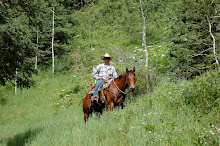
One day, if the Lord permits, I would love to tour Europe and visit sites that connect the dots of Reformation history. If this were ever to happen, I would be sure to explore what has been referred to as "The Protestant Rome" namely Geneva, Switzerland. Two particular points of interest to me would be "The Reformation Wall" (shown here) and "The International Museum of the Reformation". Why is it that Geneva has such an appeal to me? Is it because Geneva is the city that is usually associated with John Calvin (included on The Reformation Wall)? Yes it is; yet that is not the primary reason. The main reason why I am interested in the city of Geneva is because of its historical example of being a disciplined Christian community and center for ministerial training (Church History in Plain Language by Bruce L. Shelly).
Whereas Protestant teaching found its original expressions in Lutheranism, the Reformed Protestant church developed a further concept of change in the sixteenth century. Holding to the same belief in redemption, the Reformed church affirmed the belief in salvation: by grace alone (sola gratia), through faith alone (sola fide), in Christ alone (sola Christus), according to the Scripture alone (sola Scriptura), to the glory of God alone (sola deo gloria). Having said this, there are a few distinctives that separated Lutheranism from Reformed Protestantism. One difference relates to a less liturgical form of worship embraced by the Reformed over against the continuation of many Catholic symbols, and medieval practices in Lutheran churches. What is more, the Reformed church evidenced a greater separation between church and state, with more of a congregational style of government that some argue prepared for democracy in the secular realm. With a high view of preaching, the sovereignty of God, and good works as evidence of the Holy Spirit's work in the lives of believers, Reformed Christianity had no small affect on sixteenth century culture.
The Swiss cities of Zurich, and Geneva were greatly influenced by the rise of Reformed theology and practice. Ulrich Zwingli, a bold warrior for reform in Zurich, died in battle in his prime. In Geneva, a french-born lawyer named John Calvin influenced an entire city after his miraculous conversion. As an astute academic, Calvin organized Reformation theology in a classic work known as The Institutes of the Christian Religion. His writings were well received by a fellow named Guillaume Farel (included on The Reformation Wall) who would encourage Calvin to join him in Genevan reform. Change for the better was no easy attempt in Geneva. With lax morals and heresy at hand, Geneva had a great need for transformation. After being banished from Geneva in 1538, Calvin married in 1540 and was persuaded to return to Geneva in 1541. Interestingly enough, Geneva's spiritual state was improved greatly by the faithful preaching of God's Word. Calvin's insight provided a model that was employed willingly by the city council. By submitting himself to the will of God, Calvin was used as an instrument to categorically change Geneva.
The Scottish Reformer, John Knox (also included on The Reformation Wall), studied in Geneva in those days and said the city was, "the most perfect school of Christ that was ever in the earth since the days of the apostles." Persecuted people fled to Geneva, and students from all around Europe came there to learn the Scriptures. A fresh discovery of the timeless truths of the Bible brought about an incredible change in Geneva. Today, Canadian cities, towns and villages struggle with all sorts of immorality. In addition, apathy and a lack of spiritual life among members of small communities raises up great barriers to progress. To see Geneva progress from state of flagrant depravity to a place of spiritual awakening serves as a real testimony of how the gospel can change an entire city for the good. Theodore Beza (included on The Reformation Wall), head of the Geneva Academy, continued reform in Geneva after Calvin. In the same way, God is calling people in the 21st century to continue God's work of reformation in the lives of His people. What we need most in our communities is a reformation of spiritual vitality (through the preaching of God's Word) in the name of Jesus Christ. Perhaps your community will be the next new Geneva!

No comments:
Post a Comment